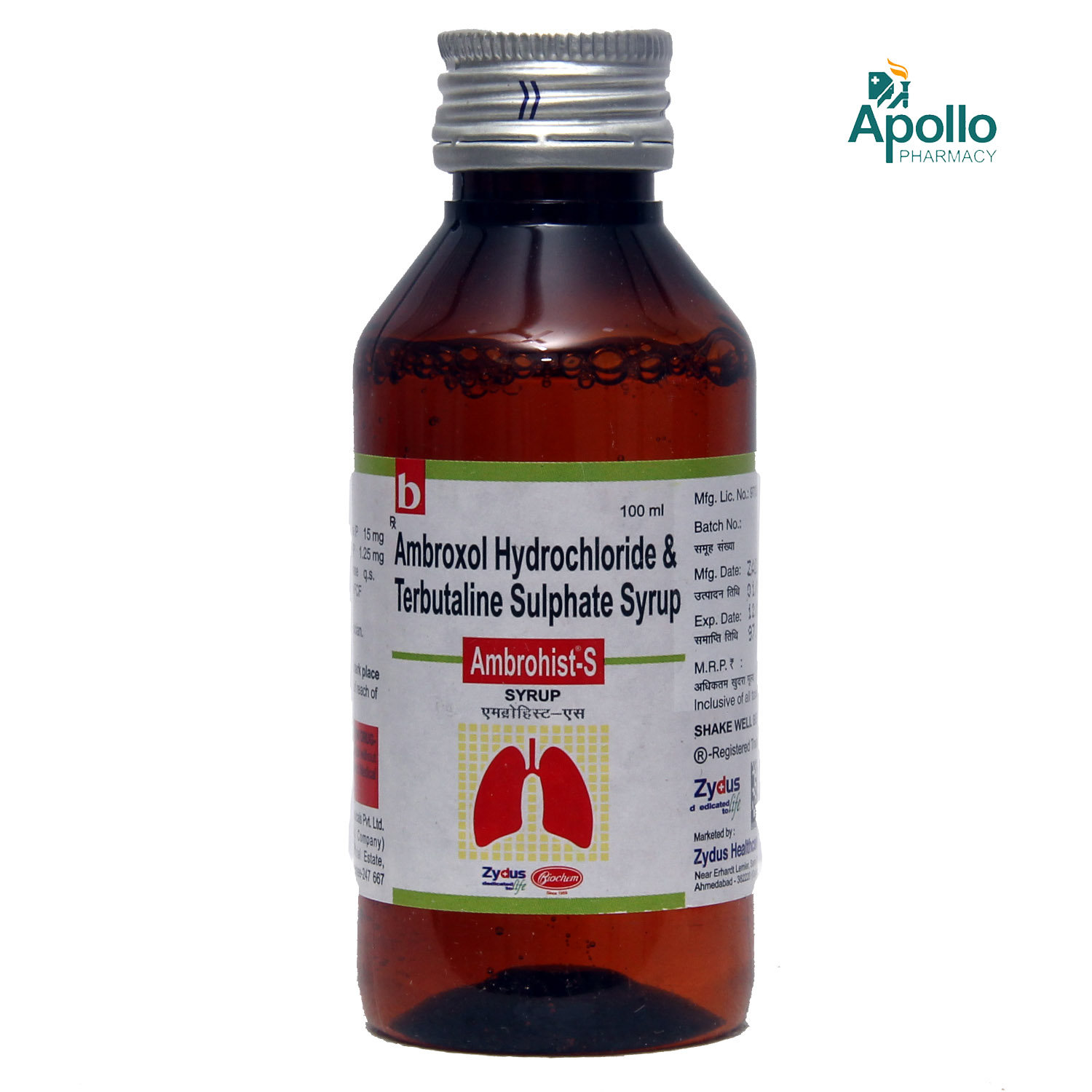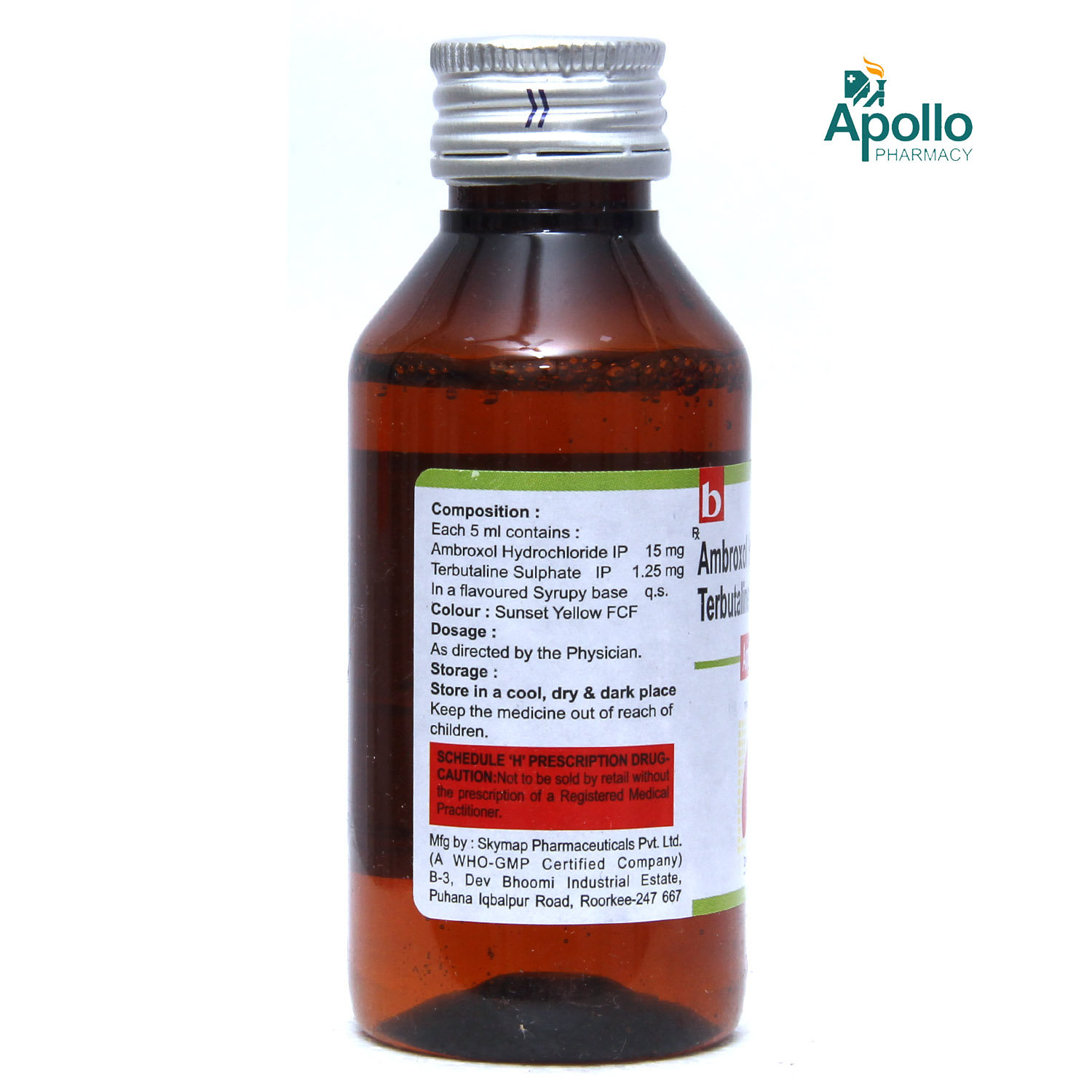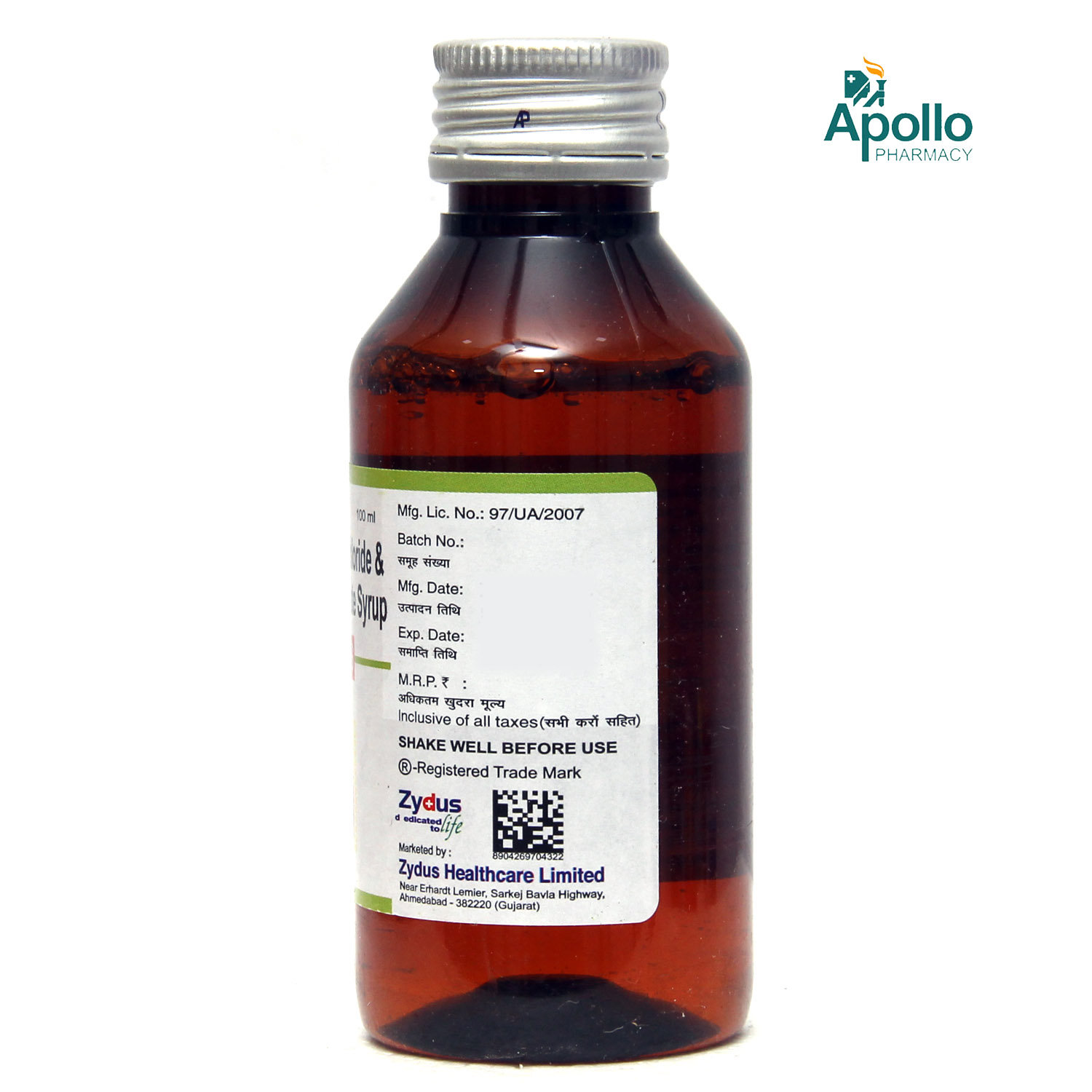Ambrohist-S Syrup 100 ml
MRP ₹133.5
(Inclusive of all Taxes)
₹20.0 Cashback (15%)
Extra 10% Off with Bank Offers
Provide Delivery Location
Non returnable*
COD available
Online payment accepted
 Prescription drug
Prescription drugWhats That
Composition :
AMBROXOL-15MG+TERBUTALINE-1.25MG
Manufacturer/Marketer :
Zydus Healthcare Ltd
Consume Type :
Oral
Expires on or after :
Return Policy :
Not Returnable
All Substitutes & Brand Comparisons
RX
Out of StockBroxtid Syrup
₹37
(₹0.33/ 1ml)
72% CHEAPERRX
Out of StockEsiresp GT Syrup
Macmillon Pharmaceuticals
₹84.6
(₹0.76/ 1ml)
36% CHEAPER
FAQs

Have a query?
Buy Now
Add to Cart










